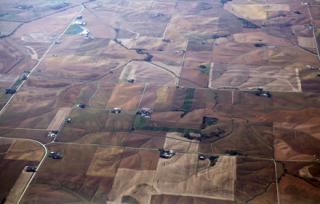 retary Tom Vilsack Monday announced the formation of a new investment program designed to help rural businesses grow.
retary Tom Vilsack Monday announced the formation of a new investment program designed to help rural businesses grow.The Advantage Capital Agribusiness Fund will use about $150 million to help existing small businesses in rural America expand. Eight Farm Credit System lenders are investing in the fund, which will be managed by Advantage Capital Partners. Advantage Capital Partners is a growth capital and small business finance firm that has invested more than $1.7 billion since 1992 in capital from insurance companies and banks, often in urban areas.
The new, rural venture, Advantage Capital Agribusiness Fund, is licensed under USDA's Rural Business Investment Program, but no taxpayer dollars are invested or at risk.
"This new fund will allow innovative small businesses throughout rural America to access the capital they need to grow and create jobs," Vilsack said during a stop in Cedar Rapids, Iowa at the headquarters of Central Iowa Power Cooperative. "One of USDA's top priorities is to help reenergize the rural economy, and we now have a powerful new tool available to help achieve that goal. This new partnership will allow us to facilitate private investment in businesses working in bio-manufacturing, advanced energy production, local and regional food systems, improved farming technologies and other cutting-edge fields."
Compared to the cost of a new 100-million gallon ethanol plant, at about $200 million, the new Agribusiness Fund might seem small. And under USDA's guidelines, it cannot invest more than a tenth of the fund, or $15 million, in a single enterprise.
Although the new fund has similarities to venture capital more commonly used in urban areas to fund promising startups, "here you're talking about established small businesses that are further along in their growth," said Jim Roberge, senior vice president for commercial lending at Farm Credit Services of America, one of the eight Farm Credit System lenders investing as limited partners in the fund.
Most venture capital has gone to urban areas. In rural America there is a need for a combination of the equity capital the new fund can provide, as well as the debt financing that can be provided by Farm Credit System lenders, Roberge told Agriculture.com.
Some of examples of business that might use the fund are those that process and market agricultural products, supply farm inputs, or provide rural communications. The fund will consider investment opportunities in any rural area in the U.S.
The other investors in the fund are AgStar Financial Services, AgriBank, Capital Farm Credit, CoBank, Farm Credit Bank of Texas, Farm Credit Mid-America and United Farm Credit Services.





